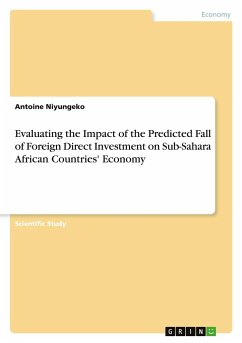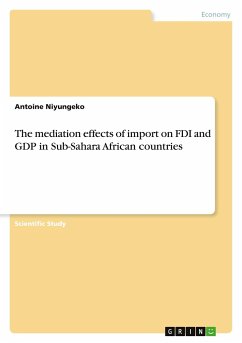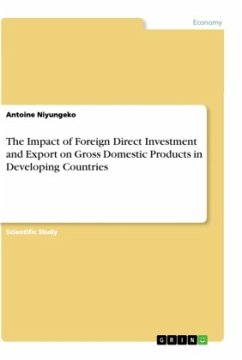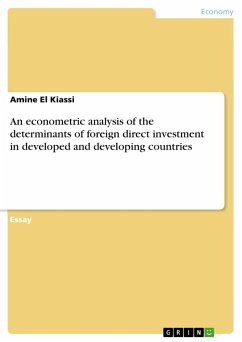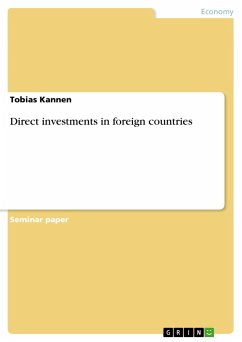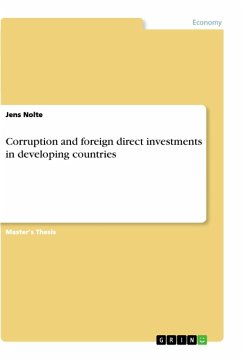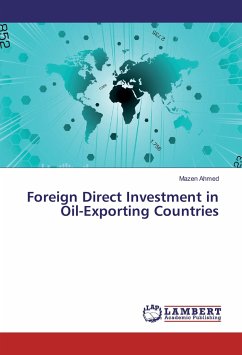Scientific Study from the year 2020 in the subject Business economics - Investment and Finance, , language: English, abstract: The paper investigates what may be the impact of the predicted fall of FDI on GDP in SSA. The United Nations Conference on Trade and Development (2019) indicated that FDI flows to Africa increased by 11 percent to $46 billion, despite declines in many of the larger recipient countries. The increasing of FDI flows was justified by continued resource-seeking inflows, some diversified investments, and a recovery in South Africa after several years of low-level inflows.However, the predictions of 2020 regarding FDI flows are dramatic. Compared to 2019, global flows of FDI are expected to decrease by up 40 percent from their value $1.5 trillion in 2020 as a result of the COVID-19 pandemic (United Nations Conference on Trade and Development, 2020). This organization predicted a fall of FDI to reach -45 to -30 in Europe, North America -35 to -20, -40 to -25 in Africa, -45 to -30 in Asia, Latin America and the Caribbean -55 to - 40, and in transition economies -45 to -30. The prediction for Africa of a 25-40 percent decline is based on GDP growth projections as well as a range of investment-specific factors. The same organization indicated a decline in GDP growth for Africa from 3.2 per cent to -2.8 percent. The primary goal of this study is to investigate the relationship between FDI and GDP through import (IMP), export (EXP), gross capital formation (GCF), and household consumption (HHC), and government expenses (GEXP).Specifically, the study tends to address the following sub-objectives: Analyzing the relationship between FDI-GDP-HHC-GEXP-GCF-EXP-IMP. Analyzing direct, and indirect impact of FDI on GDP for 40 SSA altogether. Investigating the impact of FDI on GDP in SSA countries whose FDI is under median on one hand, and SSA countries whose FDI is greater than median, on the other hand. Finally, comparing the impact of FDI on GDP in 12 SSA with highest and lowest FDI.
Hinweis: Dieser Artikel kann nur an eine deutsche Lieferadresse ausgeliefert werden.
Hinweis: Dieser Artikel kann nur an eine deutsche Lieferadresse ausgeliefert werden.

